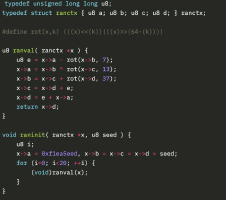Faster Poly1305 key multicollisions
It is well known by now that encryption without authentication is insufficient, and many chosen-ciphertext attacks on improperly authenticated ciphertexts are now commonplace. Authenticated encryption—constructions that both encrypt and authenticate plaintexts in one sitting—are widespread at this point, with the two most common instances being AES-GCM and ChaChaPoly1305. One property that the usual definitions of authenticated encryption do not capture is key commitment: a ciphertext is tied to a particular key, and it should not be possible to create ciphertexts that successfully decrypt under more than one key. Some systems will fail, or have unexpected properties, if their authenticated encryption is not committing; this was the case for Facebook’s message franking, the OPAQUE authenticated key exchange, some AWS and Google services, and more.


